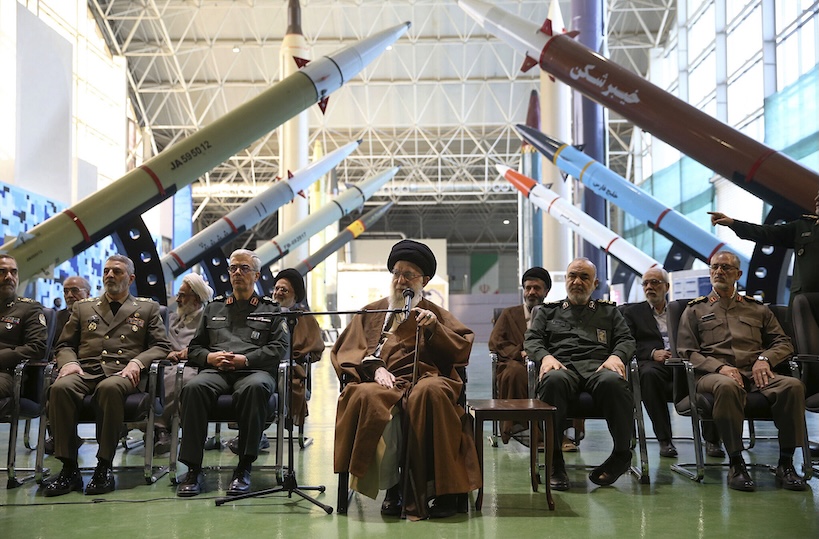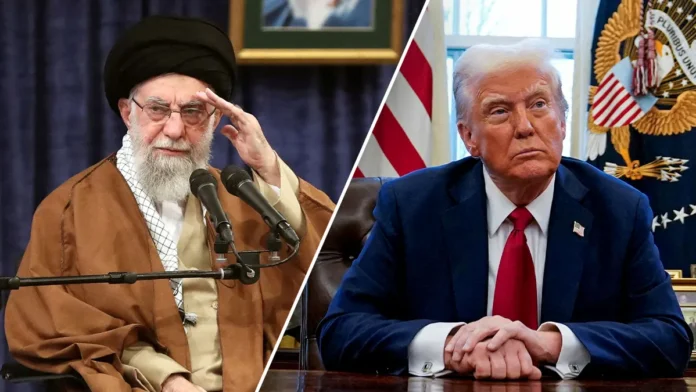Trump’s Return to Iran Negotiations Serves Israel’s Agenda
Trump has reintroduced negotiations with Iran regarding its nuclear program, even after scrapping the Joint Comprehensive Plan of Action in 2018. The agreement had already secured Iran’s commitment to halt its nuclear weapons program before he dismantled it. The latest push for a deal exposes a broader strategy that aligns with Israel’s interests rather than focusing on nonproliferation. Israel repeatedly voiced dissatisfaction with the agreement, arguing it failed to address Iran’s ballistic missile capabilities, which remain its primary concern. The nuclear issue serves as a political tool rather than an actual security threat, allowing Israel to justify aggression against Iran.
The Manufactured Nuclear Threat Narrative
Israeli officials framed Iran’s nuclear program as an existential threat, despite a lack of conclusive evidence supporting claims that Tehran actively pursues a bomb. The narrative has served as a justification for military actions and economic measures aimed at restricting Iran’s influence. “The issue’s never been Iran’s alleged desire to acquire a nuclear weapon. That’s merely the headline narrative Israel created to justify its aggression vs Iran”. Israel’s objective centers on ensuring that Iran’s ability to retaliate in any future confrontation remains limited. The ongoing emphasis on a nuclear threat conceals the larger geopolitical aim of reducing Iran’s capacity to challenge Israeli military dominance.
Trump’s Economic Pressure Strategy Falls Short
Trump’s economic pressure campaign sought to weaken Iran by restricting its access to global markets, particularly through oil sanctions, yet failed to achieve that objective. “President Donald Trump’s ‘maximum pressure’ campaign struggles to crush Iran. He seeks to strangle its oil exports, yet Iran slips through, shipping crude to China via shadow fleets” . Iran has maintained a level of economic stability, resisting Washington’s coercive tactics while forging deeper ties with China and Russia. “Unemployment has fallen below 8% in recent months. Iran counters the squeeze with alliances” (Thought Smash ). The resilience of Iran’s economy undermines the effectiveness of Washington’s economic leverage.
Israel’s Dependence on American Military Power
Israel remains dependent on American support, a factor that continues to drive its push for increased action against Iran. While Israel maintains an advanced military, it faces significant logistical and strategic obstacles when executing operations against Iran without external assistance. “Without [U.S.] backing, Israel’s small size and hostile neighbors expose it to danger. Israel bends this reliance into a weapon for its aims“. Recent meetings between Israeli and American officials highlight the ongoing effort to persuade Washington to take an aggressive stance against Tehran. Israel’s military strategy hinges on American involvement, making its diplomatic maneuvers crucial in securing that support.
Iran’s Missile Program at the Center of Israeli Concerns
Israel has pushed for a deal that restricts Iran’s missile capabilities, which were never addressed in the JCPOA. Israeli leadership has long viewed Tehran’s missile stockpile as a major threat, one that serves as a deterrent against potential Israeli aggression. “Israel’s loudest complaint about the JCPOA at the time was that it did nothing about Iran’s ballistic missiles“. By focusing on Iran’s missile program rather than its nuclear capabilities, Israel reveals that its concern lies in securing military dominance rather than preventing nuclear proliferation. The recent negotiations appear tailored to serve Israel’s security interests at the expense of broader diplomatic stability.

The Carrot-and-Stick Approach in Trump’s Strategy
Trump’s approach employs economic leverage, diplomatic ultimatums, and possible incentives to force Iran into compliance. His administration issued threats of military action while simultaneously offering talks, presenting a familiar pattern of coercion. “Trump’s letter proposed negotiations on a new nuclear deal, but also warned of consequences should Iran reject the offer” (Jerusalem Post). Iranian leadership remains divided, with President Masoud Pezeshkian favoring diplomacy while hardline factions reject engagement with Washington. “Iran looks to America for lasting relief. Hard-liners hobble Pezeshkian—his finance minister was ousted on March 2—yet the pull of U.S. acceptance endures”. The mix of incentives and threats seeks to exploit Iran’s internal divisions to extract concessions.
Iran’s Leadership Faces a Defining Choice
Iran’s leadership faces a decision that could shape the country’s geopolitical standing. Supreme Leader Ali Khamenei and the Islamic Revolutionary Guard Corps view concessions as a threat to Iran’s strategic position. “The key question is: what will the IRGC & Khamenei do when they realize what is being asked of them, viz. that they submit to & show deference to Zionist Evil?”. The negotiations do not offer Iran meaningful benefits but instead seek to weaken its regional influence. Iran’s leadership must weigh the consequences of compliance against the risks of further economic and military pressure. The balancing act between diplomatic engagement and strategic resistance remains at the center of Iran’s foreign policy calculations.
Washington Carries the Cost of Israel’s Ambitions
Trump’s renewed push for a nuclear deal reflects a broader effort to serve Israel’s interests rather than address legitimate security concerns. The negotiations aim to neutralize Iran’s military capabilities, reinforcing Israel’s dominance in the region. Economic measures, diplomatic pressure, and military threats combine to force Iran into submission, a strategy that serves Israeli ambitions while placing the burden on Washington. “America pays for Israel’s reach and Iran’s dodge. Iran’s fear keeps it at bay, while Israel wields U.S. might”. The ongoing strategy leaves Washington entangled in a conflict that serves foreign interests rather than American priorities.

